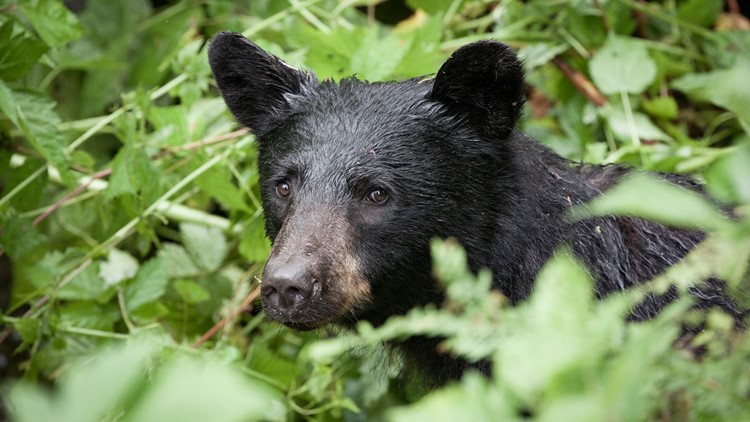If you're an avid camper or hiker, be on the lookout for bears in the Mount Baker-Snoqualmie National Forest. The number of bear sightings this year is increasing, according to the U.S. Forest Service.
Bear sightings have been specifically reported from Elliott Creek to the National Forest Sauk confluence on the Mountain Loop Highway. Other locations in the forest have also reported bear sightings.
Bears are attracted to campgrounds due to the large concentration of food and garbage found there. Since they venture into campgrounds so often, they disregard humans and still enter these occupied areas.
While some may think this means the bears who hang around campgrounds are used to humans, this is not the case. These bears are still wild animals. If they continue to rely on food left by humans, they will start down a path that leads to euthanasia.
Once a bear loses their fear of humans, they become more aggressive and dangerous and therefore a safety concern.
To avoid a negative contact with a bear, remember these tips if you encounter one:
- Do not run
- Stay calm and pick up small children
- Face the bear at all times and back away slowly while talking calmly. This way the bear knows that you are human.
- If the bear approaches you, make yourself as big as possible by stretching your arms and making loud noises.
- While on a trail, stay alert and do not use headphones. Approach blind corners with caution.
- Carry bear spray in case of an emergency. This will come in handy if the above tactics don't work. Understand how to use bear spray.
Hiking in bear territory
- Do not feed bears or other wildlife
- To learn about special guidelines for the area you will be in, visit or call the local Forest Service office
- When you go on a hike, inform someone where and when you are going
- Read signs at all trailheads
- Stay alert and do not wear headphones while on trails
- Carry bear spray and understand how to use it
- Hike with a group of people and keep any dogs on a leash
- Be loud and make plenty of noise
- If you are on an extended trip, use a bear-resistant canister to make sure your food doesn't attract bears
- If you happen to see a bear, stay a safe distance away from it and change your path to avoid the bear. Do not block the bear's route
- If you see a lone bear cub, do not get closer as the mother may be near and will be aggressive in order to protect her cub
Camping in bear territory
- Keep your campsite clean and free of trash
- Do not store any food or scented items inside of your tent. This includes any clothing that has food on it
- Do not leave food in your vehicle or at your campsite unattended
- Bring your own bear-resistant lockers or dumpsters, or use those provided at your campsite
- Clean all utensils and food-related cookware thoroughly after use
- Never store garbage at your campsite
- If at a primitive or undeveloped camping area, store and cook your food far away from your sleeping area or tent.
If you encounter a cougar or black bear issue, and it is not an emergency, contact the nearest regional Department of Fish and Wildlife office between the hours of 8 a.m. and 5 p.m., Monday through Friday.
If you would like to report a bear by phone, call (425) 775-1311.
In the event of a non-emergency problem when Department of Fish and Wildlife offices are closed, contact law enforcement.



